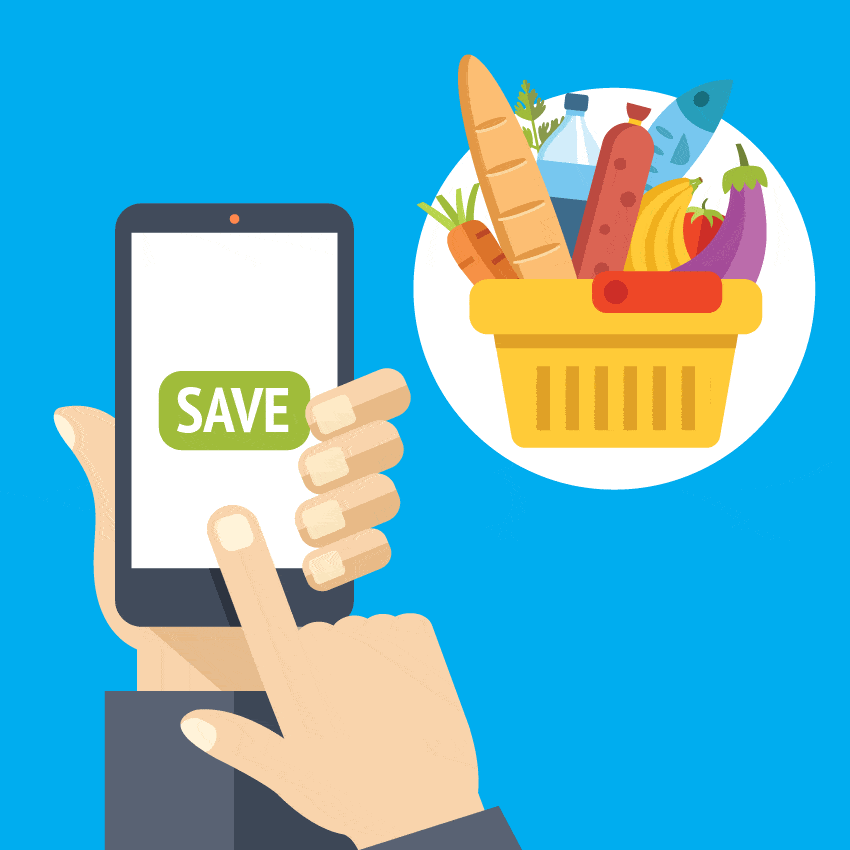Money-Saving Magic: The Ultimate Grocery Shopping Guide for Parents
Hello lovely readers! Are you ready to transform your grocery shopping experience? As a parent, balancing the budget while trying to satisfy your family’s tastebuds and nutritional needs can be like a tightrope walk in a circus. But don’t you worry! I’ve got some brilliant tips to help you save money without skimping on the yummy factor. Let’s dive into a basketful of savings and keep that wallet happy!
1. Plan, Plan, and Plan Some More!
The first spell in our money-saving grimoire is planning. A shopping list is a wand that can magically wipe out those impulsive buys. Create a weekly meal plan, peek through your pantry, and then craft a shopping list. Stick to it as if it’s your grocery gospel!
2. Go Digital with Deals and Coupons
Modern-day treasure hunters, unite! Whip out that smartphone and start scouring for digital coupons and app-based deals. Many stores have their own apps that can save you a pretty penny at checkout. Don’t forget to sign up for your favorite store’s loyalty programs to earn points and exclusive discounts.
3. Shop Seasonal and Local
Serenade your senses and savings by choosing seasonal produce. Farmers’ markets and local grocers often have fresh, in-season fruits and veggies that didn’t trek halfway across the world. It’s a win-win: you support local businesses and snag lower prices.
4. Buy in Bulk, but Wisely
Club memberships can be a game-changer for bulk buys. Non-perishables like rice, pasta, and canned goods can save your budget when bought in larger amounts. But be cautious, grasshopper—don’t bulk buy perishables unless you’re hosting a block party or you’re sure you’ll use them in time.
5. Embrace Store Brands
Brand loyalty could be a costly affair. Wave the loyalty goodbye and embrace store brands with open arms. Often, they’re just as scrumptious and nutritious as their branded counterparts but are gentler on your bank account.
6. Got Leftovers? Get Creative!
Transform yesterday’s dinner into today’s masterpiece. Leftover roasted veggies can morph into a delightful frittata and last night’s chicken can dawn a new avatar in a salad or sandwich. It’s not just recycling; it’s a culinary art!
Let’s take a breath, shall we? You’re doing great at absorbing all these spectacular money-saving strategies. In the next section, we’ll continue to unravel even more tips to keep that hard-earned cash right where it belongs—your wallet! So, buckle up for more savvy shopping advice!
Until then, remember frugality isn’t a sacrifice, it’s a smart lifestyle. Happy and savvy shopping to you, dear parents. You’ve got this!

7. Choose Off-Peak Shopping Hours
Do you know that the time of day you shop can affect how much you spend? Opting for off-peak shopping hours can lead to more in-store specials, reduced prices on perishables nearing their sell-by dates, and a calmer shopping environment to think through purchases without the pressure often present during busy hours. Plus, it’s an excellent way to avoid those long lines!
8. Maximize Meal Efficiency with Versatile Ingredients
Stocking your shelves with versatile staples can lead to zillions of meal possibilities. Think beans, frozen vegetables, eggs, and cheese. These heroes of flexibility can adapt to almost any recipe and cut costs without sacrificing nutrition. It’s about creating a kitchen that’s prepared for culinary improvisation at a moment’s notice.
9. Be a Label Reader & Compare Unit Prices
Here’s your magnifying glass, Sherlock! Take a closer look at the unit prices on shelf tags. Comparing prices by weight or volume can reveal the best deal, especially when discounts and promotions are applied. Although it takes an extra moment, your wallet will thank you for this detective work.
10. Repurpose and Prevent Waste
Waste not, want not. Keep an inventory of what you have, and get creative with food approaching its expiration date. Stale bread? Hello, breadcrumbs or croutons! Wilting vegetables? Time for a stir-fry or smoothie. By repurposing food, you can save money and contribute to a more sustainable planet. Get those creative juices and those blenders going!
5 Essential Things Parents Should Know Before Food Shopping to Save Money
- Understand Sales Cycles: Most supermarkets have sales cycles, usually running 6 to 8 weeks. Track when your essentials go on sale and stock up then to maximize your savings.
- Never Shop Hungry: It’s old advice, but it’s golden. Shopping on an empty stomach can lead to impulse buying. A content belly equals a focused mind—and shopping list!
- Know Your Pantry: Before heading out, reacquaint yourself with your pantry. It prevents buying what you already have and can inspire meal ideas using those overlooked cans or dry goods.
- Use Cashback Apps: Technology can be your ally in saving money. Utilize cashback apps that reward you for purchases you’re already making—it’s like getting paid to shop!
- Learn Basic Cooking Skills: The ability to whip up simple, delicious meals can save you from the temptations of costly ready-to-eat options. Plus, it’s a healthy skill that benefits the entire family!
Remember, savvy parents, every penny counts when it comes to grocery shopping. Implementing even a few of these strategies can lead to noticeable savings over time. Stay informed, stay creative, and enjoy the process—after all, smart shopping is as much about the journey as it is about the destination. Go forth and conquer those aisles with confidence!
See more great Things to Do with Kids in New Zealand here. For more information see here
Disclaimer
The articles available via our website provide general information only and we strongly urge readers to exercise caution and conduct their own thorough research and fact-checking. The information presented should not be taken as absolute truth, and, to the maximum extent permitted by law, we will not be held liable for any inaccuracies or errors in the content. It is essential for individuals to independently verify and validate the information before making any decisions or taking any actions based on the articles.




